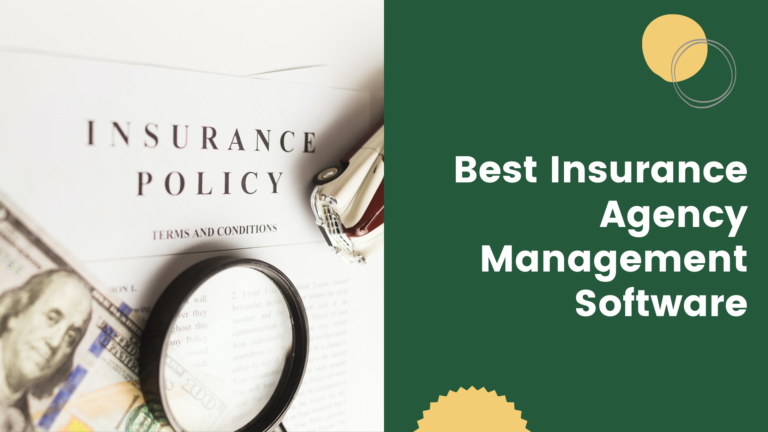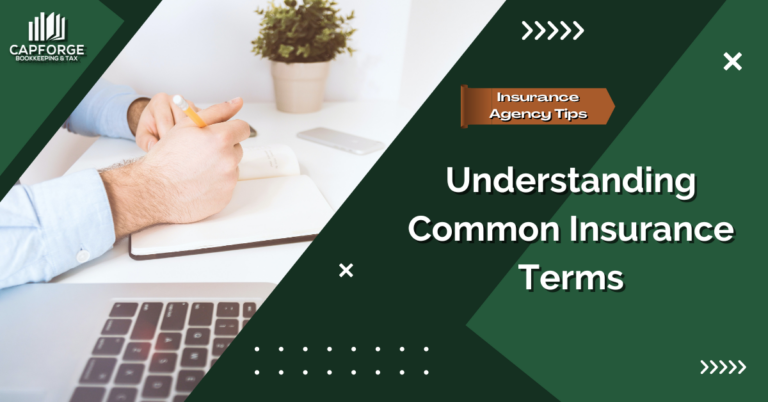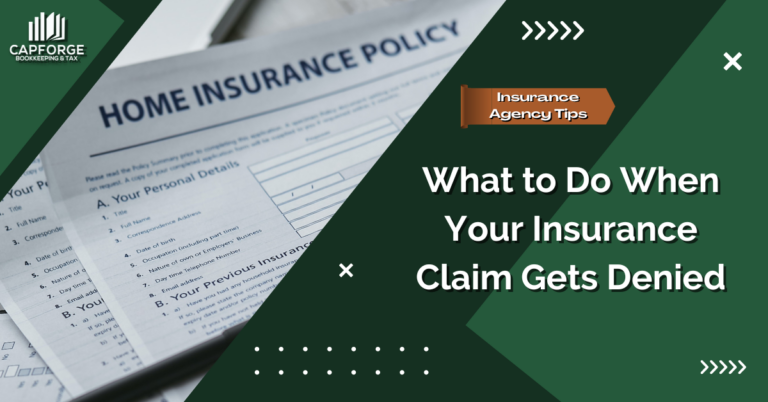How to Sell Your Insurance Agency
At some point in your life, you’ll face big decisions as an agency owner. You’re ready to move forward and are looking at the bigger picture ahead. Eventually, you’ll think about selling your insurance agency in pursuit of other meaningful goals.
If you’re in this stage of your career, then congratulations! The amount of effort and dedication has led you to create a business that’s truly worth something. But before you sell your agency, you need to know a couple of things to ensure you’re getting the most profit out of your business.
This article will cover every important detail on how to sell your insurance agency. From creating an exit plan to finalizing the deal, you’ll be able to make sound choices by following this complete guide.
Step 1: Know your reason to sell the business
Perhaps you want to retire after spending many years building your insurance agency. Or, you wake up one day and realize you want to spend more time with your family. It may sound trivial, but these things are often the reasoning behind an agent wanting to sell their business.
Why does this matter? Because when your intentions are clear-cut, the transition to selling your agency becomes much easier. You won’t have to second-guess your decision because your heart is set in stone. Your business is a huge part of your life, and you can’t afford to make a mistake at this point.
Step 2: Create an exit strategy
Selling an insurance agency isn’t as simple as finding a buyer. You want to create a sound exit strategy to prepare yourself for what lies ahead. Making snap decisions can lead to financial implications and affect your plans in the future.
The savviest agents know that selling an insurance agency is a slow process, which is why they develop a sales strategy ahead of time. This allows you to research the market and figure out how much you’ll be making in return for your business.
You want to make sure that the money you’ll receive will be enough to fund your retirement or your next career venture. Once you’ve cleaned up your agency’s financials, you’ll be able to attract top buyers. The more dollars you can add to the bottom line, the higher the sale price will be.
Step 3: Determine the value of your insurance agency
This step is where most agency owners struggle to navigate. It can be easy to overvalue your business due to raw emotion, but the cold, hard numbers will always speak for themselves.
Look at your total earnings. Most insurance agencies sell anywhere from 1x to 3x their annual gross commissions, meaning if you’re generating $200,000 per year in net profits, a realistic selling price will be around $200,000-$600,000.
Of course, it’s not always about the money. Assets and products that have huge income potential are going to affect the sale price of your insurance agency. Businesses that can grow their assets will always be worth more in the eyes of buyers than those who can’t, so bear that in mind when selling your agency.
Another thing to consider is the risk involved for the potential buyer. If they spot a couple of warning signs in your insurance business, they might be hesitant to pull the trigger. One example is when your agency’s books aren’t up-to-date. The buyer may start thinking about financial issues and potential dollars down the drain, thus lowering the value of your business.
Despite all these, it’s difficult to know the true worth of your business when you do the number-crunching by yourself. That’s why we always recommend hiring a merger and acquisition consultant (M&A) consultant as they can perform a complete business valuation to determine your agency’s fair value.
Step 4: Seek professional advice
Speaking of an M&A consultant, their experience and expertise will prove invaluable to you as you look to sell your agency. Like with many business decisions, selling your insurance agency comes with risks. Your goal should be to minimize the risks and maximize the returns as much as possible.
What does a merger and acquisition consultant do exactly? Their role is to facilitate the sales process through time-tested methodologies. They’ll conduct a business valuation, create an acquisition strategy, conduct a detailed analysis, and close the deal once a sale agreement has been reached.
An M&A consultant will give you solid advice on when you should sell your agency, who to sell it to, and what you should expect throughout the sales process. As you know, selling an insurance agency involves a lot of intricate details. By hiring an M&A consultant, you’ll be able to eliminate the guesswork and devise an effective sales strategy.
Step 5: Find the right buyer
Letting go of your business can be difficult, but what’s even more painful is handing over the keys to the wrong buyer. You want to make sure your business is in good hands. After all, you don’t want your effort and dedication to go to absolute waste.
Is the buyer a part of your agency? (an internal sale) or are they another agency or third-party buyer? (an external sale). If you’re looking to do an internal sale, check if they are capable of managing the business. If the sale is an external one, make sure to negotiate a fair offer.
Just like when buying an insurance agency, you want to do your due diligence when selling your business. Don’t be hesitant to walk away from a potential buyer if you feel they lack the capability of nurturing your business.
Buyer compatibility is important to selling your insurance agency. If your philosophies and expectations don’t match, you’ll find it hard to reach an agreement.
Step 6: Figure out how you want to get paid
Once you’ve established a fair sale price for your business and have found the right buyer, the next step is to figure out how you want to get paid. The three most common options are the lump-sum method, the over-time method, and the earnout method.
1. The lump-sum method
The lump-sum method is ideal if you want to receive the full purchase price of your insurance agency. The buyer will take out a loan and pay the exact sale price of your business. The great thing about this is that you instantly receive all of the money, allowing you to focus on your next venture and move on with the deal.
It’s an easy, one-time payment that poses zero risk for you as a seller. However, it is the riskiest option for buyers as they can potentially lose a lot of money if the business fails. Because of this, buyers are likely to opt for another mode of payment which is the over-time method.
2. The over-time method
The over-time method is perfect if you want to make more money out of your sale. You and the buyer will agree to a set percentage of the sale price and the rest will be paid with a loan note. From there, you can either continue to receive payments on the note or sell it to a note purchasing company.
3. The earnout method
The earnout method is the riskiest out of all the payment methods but offers the highest rewards for those who are willing to take a gamble. The buyer will pay an upfront percentage of the sale price and the remaining will be paid overtime as they hit future performance targets.
This means that the remainder of your profits will be highly dependent on how the company performs. If the insurance agency doesn’t reach its performance goals, you will make less money. But if the business is booming, you’ll receive a steady stream of income.
Make sure to weigh the pros and cons of each payment method and discuss them with the buyer so that both parties can agree to a fair deal.
Step 7: Seal the deal
You’ve reached the last step of the sale process. Congratulations! You’re one step closer to reaping the rewards of your hard-earned business. Once both parties have agreed to terms, the M&A will prepare a letter of intent. This document contains key details about the deal and formalizes a legally binding agreement between you and the buyer.
The attorney and the certified public accountant will use the letter of intent as a guide to finalize all the necessary documents. Keep in mind that the document serves as a starting point for the attorney and the CPA. Make sure they follow the details in the letter of intent as closely as possible.
The buyer then prepares all the documents needed to finalize the deal. The most important one is the purchase agreement which is a binding legal contract that outlines the terms and conditions of the sale. Your attorney will then review all the documents to confirm that they meet the goals of the letter of intent.
Conclusion
Selling your insurance agency is a lengthy process that requires thorough planning and preparation. You’ve made it this far in your career as an insurance agent and now it’s time to enjoy the fruits of your hard work. By following this guide, you’ll be able to make smart decisions and prepare for the next journey of your career.
If you’re an insurance agency owner and would like help understanding the financial health of your firm and getting your bookkeeping done right, we can help. Just fill out the form below and we will be in contact with you shortly.








